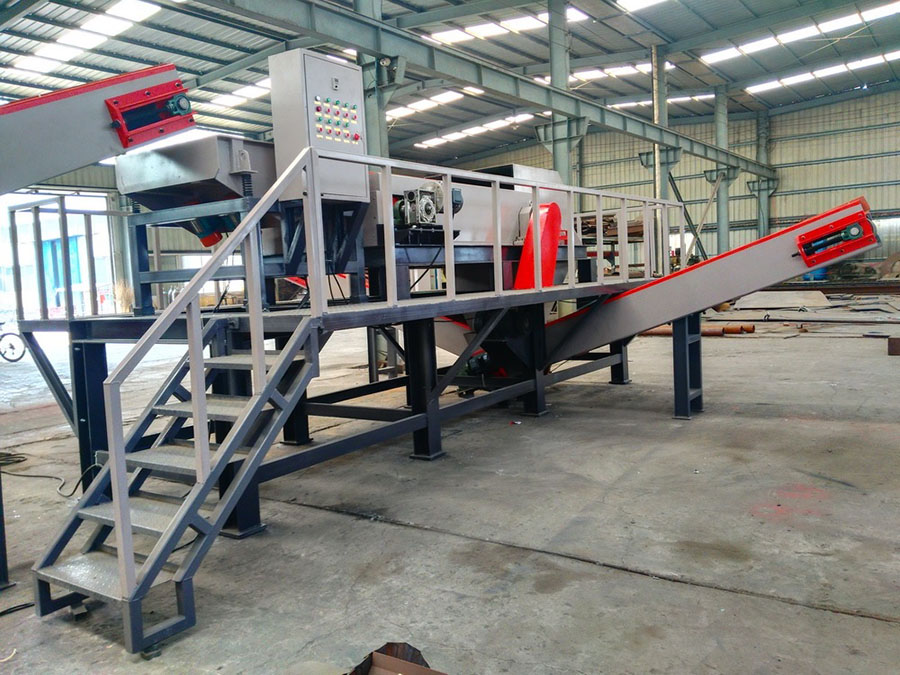

Gru . 05, 2024 17:47 Back to list
The Importance of Steel Shredders in Recycling
In today's world, the escalating issue of waste management and the need for sustainable practices have led industries to adopt innovative ways to recycle and repurpose materials. Among the crucial methods for recycling scrap metals, steel shredding plays a pivotal role. Steel shredders are powerful machines designed to break down large volumes of scrap metal into smaller, manageable pieces, making recycling more efficient and environmentally friendly. This article explores the importance of steel shredders in the recycling industry and their contributions to sustainability.
Understanding Steel Shredders
A steel shredder operates by using a series of rotating blades and hammers to pulverize large chunks of steel into smaller fragments. These machines vary in size and capacity, with some capable of processing several tons of material per hour. The design of steel shredders focuses on maximizing efficiency while ensuring safety and minimal wear and tear. By reducing steel to smaller particles, shredders facilitate the processes that follow, such as sorting, melting, and re-manufacturing into new products.
Environmental Benefits
Recycling steel through shredding has significant environmental benefits. The recycling process helps reduce the need for mining raw materials, which is a resource-intensive and environmentally damaging activity. Mining requires extensive land disruption, energy consumption, and water usage, often resulting in habitat destruction and pollution. In contrast, recycling steel preserves natural resources and minimizes waste sent to landfills. It is estimated that recycling one ton of steel can save 2,500 pounds of iron ore, 1,400 pounds of coal, and 120 pounds of limestone.
Furthermore, recycling steel reduces greenhouse gas emissions. The steel industry is known for its high carbon footprint, largely due to the energy-intensive processes involved in producing steel from raw materials. Shredding scrap steel and recycling it requires less energy — up to 75% less than producing steel from virgin ore. By utilizing existing materials, steel shredders contribute significantly to reducing overall emissions related to steel production.
Economic Advantages

The economic benefits of steel shredding extend beyond environmental considerations. The recycling industry, bolstered by steel shredders, creates numerous jobs in collection, processing, and manufacturing. As the demand for recycled steel continues to grow, industries invest in new technology and infrastructure, further boosting economic development. The efficient processing of scrap metal helps create a robust market for recycled materials, which often sell at competitive prices compared to new materials.
Additionally, steel shredders facilitate a more efficient recycling process, leading to lower operational costs. Scrap yards can process large quantities of steel in a shorter time, allowing them to handle more materials and generate higher revenues. This efficiency translates into better pricing for consumers and manufacturers who rely on recycled steel for their products.
Challenges and Future Developments
While steel shredders offer numerous benefits, the industry also faces some challenges. The initial investment for advanced shredding technology can be substantial, limiting access for smaller recyclers. However, as technology advances, costs are likely to decrease, making shredders more accessible. Furthermore, ongoing research and development are focused on creating even more efficient and environmentally-friendly shredding technologies to enhance the recycling process.
Another challenge is the contamination of scrap metal. Non-metal materials can hinder recycling efficiency and affect the quality of the final product. Educating businesses and communities about proper waste disposal and segregation can help mitigate these issues, allowing steel shredders to perform optimally.
Conclusion
Steel shredders represent a vital component of the recycling process, transforming large volumes of scrap metal into valuable resources. Their role in environmental protection, economic development, and resource conservation cannot be overstated. As the world continues to seek sustainable solutions to pressing environmental issues, the importance of steel shredders will only grow. By investing in advanced shredding technologies and improving recycling practices, we can work towards a more sustainable future, turning waste into opportunity while protecting our planet for generations to come.
Latest news
Troubleshooting Common Eddy Separator Problems
NewsJul.04,2025
The Role of Metal Recycling Plants in Circular Economy
NewsJul.04,2025
The Impact of Recycling Line Pickers on Waste Management Costs
NewsJul.04,2025
Safety Features Every Metal Shredder Should Have
NewsJul.04,2025
How Industrial Shredders Improve Waste Management Systems
NewsJul.04,2025
How Cable Granulators Contribute to Sustainable Recycling
NewsJul.04,2025